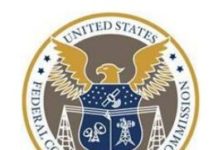If it were up to Republican FCC Commissioner Brendan Carr, it would be prohibited from use in the USA. The legislative body that has Commission oversight, the House Energy and Commerce Committee, has expressed its concerns about its impact on privacy and data security.
But, should Tik Tok be banned? One Conservative D.C. Think Tank says no, ahead of a just-announced March 23 appearance on Capitol Hill by Tik Tok CEO Shou Zi Chew himself.
House E&C Chair Cathy McMorris Rodgers (R-Wash.) announced early Monday (1/30) that the TikTok chief executive will appear before the committee on March 23 to testify on TikTok’s consumer privacy and data security practices, the platforms’ impact on kids, and its relationship with the Chinese Communist Party.
It will be Chew’s first appearance before a Congressional committee, and Rodgers and other Republican Members of the U.S. House will likely be salivating over the opportunity to get a clear idea of just what Tik Tok’s ties are to Beijing’s political leadership.
Rodgers commented, “Big Tech has increasingly become a destructive force in American society. The Energy and Commerce Committee has been at the forefront of asking Big Tech CEOs — from Facebook to Twitter to Google — to answer for their companies’ actions. These efforts will continue with TikTok.”
As Rodgers and House GOP leaders see it — and perhaps Carr, too — ByteDance-owned TikTok “has knowingly allowed the ability for the Chinese Communist Party to access American user data.” Thus, Rodgers said, “Americans deserve to know how these actions impact their privacy and data security, as well as what actions TikTok is taking to keep our kids safe from online and offline harms. We’ve made our concerns clear with TikTok. It is now time to continue the committee’s efforts to hold Big Tech accountable by bringing TikTok before the committee to provide complete and honest answers for people.”
Could a spin of TikTok to a U.S. subsidiary free of any links to the Chinese Communist Party be one potential solution for the continued availability of a social media platform that has taken a leading role in the creation of Top 40 singles globally?
While that may be one solution, the outright ban of Tik Tok stateside is not, says Daniel Lyons, a nonresident senior fellow at the American Enterprise Institute, where he focuses on telecommunications and internet regulation. Lyons is also the associate dean of academic affairs and a professor of law at Boston College Law School, where he teaches telecommunications, administrative, and cyber law, among other courses.
In a blog post released Monday by the AEI, Lyons noted that in December 2022 FBI Director Christopher Wray raised concerns about TikTok, becoming the latest in a long line of government officials who have expressed concern about the influence the Chinese government may have over the app, and the national security implications of the data the app collects on American users.
While some regulation of the platform’s data collection practices is presumably necessary to protect national interests, Lyons says, “the First Amendment likely prohibits the government from completely banning TikTok nationwide.”
Concerns about TikTok date to late 2020, former President Donald Trump issued two executive orders purporting to stop Americans from using ByteDance products and WeChat (another popular Chinese social media app); several courts blocked the rules implementing these directives.
Current President Joe Biden replaced those with a more tailored order purporting to define when foreign apps pose an “unacceptable risk,” Lyons notes. Nearly half of states have banned TikTok on state-owned devices, and last month the federal government joined them.
Then came Sen. Josh Hawley (R-Mo.)’s introduction last week of legislation that would ban the Tik Tok app nationwide. That’s problematic for Lyons.
“In legal terms, this ban would likely be considered a content-neutral speech restriction: It limits one’s ability to speak, but not on the basis of what the speaker intends to say. (These are sometimes called “time, place, and manner” restrictions.) To survive judicial scrutiny, the government must show that the law is “narrowly tailored to serve a significant governmental interest.” In other words, the restriction must (1) further an important governmental interest unrelated to speech, and (2) not burden substantially more speech than necessary to achieve that interest.”
Even conceding the important government interest at stake, “a national ban burdens far more speech than necessary to achieve that end,” Lyons added. “A flat ban prohibits all speech on the platform, only a small part of which could possibly constitute Chinese propaganda or generate useful intelligence for the Chinese government. Dance videos, sea shanties, displays of judicial compassion, and millions of other protected messages would be suppressed in the interests of counterespionage.”
That said, Lyons believes more narrowly tailored bans may survive judicial scrutiny. “Bans on TikTok use on government-owned devices, for example, are likely constitutional, as the risk of useful intelligence is greater on such devices, and users remain free to explore TikTok on private devices when off the clock,” he says. “Similarly, restrictions on how TikTok stores and shares data could address national security concerns without broad speech suppressions.”
Yet, Lyons concludes, TikTok raises a question similar to that presented in privacy debates. “The First Amendment protects lots of activity that can be nonetheless affirmatively harmful. In both spheres, the challenge isn’t controlling the flow of data online. The real difficulty is limiting the data available to begin with, for example by getting people to care about when sharing personal information might unwittingly help a foreign power.”




